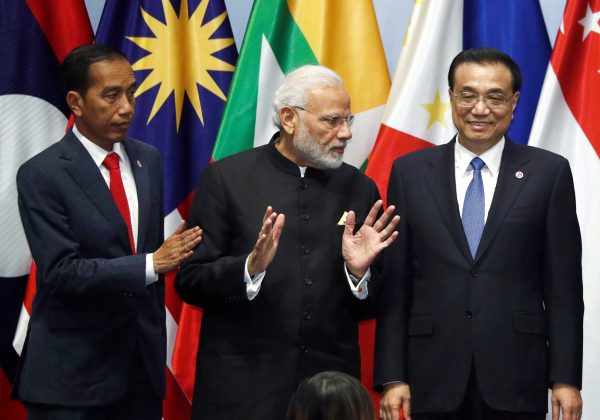Where we are in 2019 has parallels with the situation in 1945. Emerging from World War II, the world was then burdened with the memory of the Great Depression with its financial chaos, restrictions on international trade, and widespread unemployment. Many foresaw a return to the closed economies and authoritarianism of the 1930s.
But instead, the world looked back to the openness of the era before World War I. In order to spread growth and development from the United States to Europe and Japan, US leaders — in collaboration with those from Britain and elsewhere — reached out to create a liberal, multilateral and rules-based international order. At Bretton Woods, the International Monetary Fund was established to help countries pursue full employment, unencumbered by balance of payments problems, while the World Bank was established to provide finance for reconstruction and development.
Soon afterwards, the General Agreement on Tariffs and Trade (GATT) was established to promote the liberalisation of international markets — ultimately leading to the World Trade Organization. The Marshall Plan was also set up to aid European reconstruction, eventually leading to the European Common Market and the European Single Market. The cooperative framework established under the Marshall Plan was gradually transformed into the Organisation for Economic Cooperation and Development, with world-wide significance.
This new world order did not just lead to economic reform. It was also designed to constrain the behaviour of the United States as the rising global hegemon. In the 1930s the United States had used the Smoot Hawley Tariff. And at the beginning of World War II the US had imposed Lend Lease Agreements on countries in the British Empire, as a price for US support during the war, requiring promises that they open their markets to American goods. Leaders in Britain, Australia, and elsewhere saw the Bretton Woods institutions, and the GATT, as essential protection from such activities by the United States.
Now, like then, the world is burdened by memory of financial chaos — this time the Global Financial Crisis of 2008. The challenge today is to continue the outward-looking process of development begun in 1945, but without the leadership of the United States and Britain.
With US President Donald Trump taking a zero-sum approach, and Europe looking evermore inward, leadership falls to Asia. As the world’s fastest growing region, Asia offers unique opportunities for pioneering reform.
The objective must be to sustain and develop a regional — and global — order that is liberal, multilateral and rules-based. Trade negotiations within RCEP have been a good start. But RCEP needs to be more than a normal free trade agreement. To be successful RCEP needs to be built on an understanding of the deep links between the international markets for goods, services, investment and finance — these areas must be dealt with together if good outcomes are to be achieved.
As a result, the RCEP process needs to lead — even if gradually — not just to the removal of trade distortions and the construction of regulatory infrastructure for services. It must also help create a better climate for investment and an appropriate regulatory framework for international financial movements. These kinds of regional cooperation go well beyond a single agreement about trade in goods and services. Regional institutions will be a key to ensuring that this cooperative process is well managed.
All of this must be done in a way that constrains China, today’s rising hegemon, in the same way the United States was constrained after 1945. Like the Marshall Plan, the Belt and Road Initiative must enable multilateral cooperation, rather than — as some fear — a development process distorted towards China’s needs. The regional institutions of RCEP will need to manage this process, paying special attention to the role of Chinese state-owned enterprises and to intellectual property issues.
Asia’s experience over the last three decades shows what kind of leadership is necessary. Institutions must be underpinned by trust and voluntary cooperation, rather than conditionality and enforcement. Importantly, the freedom for countries to act according to their own objectives must be preserved. If this is achieved, then it will be possible for domestically-led, behind-the-border reform to go hand-in-hand with international opening and cooperation. For that to happen, institutions created through RCEP need to be platforms where information is exchanged, preferences are articulated and compromises are reached — but countries remain able to act autonomously.
The RCEP process is giving Asia the chance to show how cooperation should be promoted, and the multilateral order developed, at the global level. This might help to prevent conflict between the rising superpower, China, and the previous hegemon, the United States. The aim must be an international coalition that enables countries to communicate, exchange information, and open up their commerce, and to do this even when tensions emerge.
David Vines is Emeritus Professor of Economics and Emeritus Fellow of Balliol College, the University of Oxford. He is currently a Visiting Fellow at the Crawford School of Public Policy, the Australian National University.

